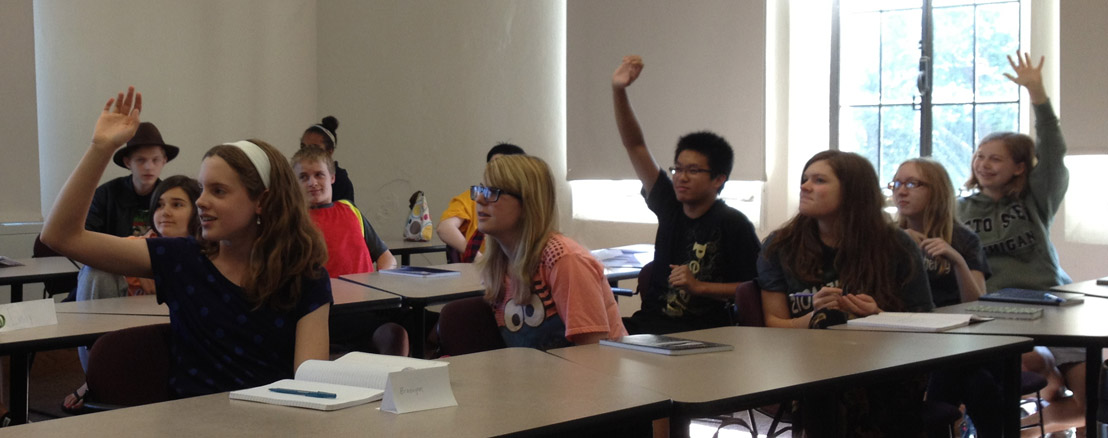Butler Bridge, the program connecting the Butler MFA with Indianapolis students grades 3-12, celebrated a successful semester with a Christmas party and gift exchange. Students and MFA mentors are excited about the upcoming semester.

The program consists of specialty workshops run by MFA students and monthly writing club meetings. The club is capped at fifty students and remains a huge draw in the community. Butler Bridge is directed by Mindy Dunn and her assistant Elisabeth Giffin. Elisabeth is also a mentor and the graduate assistant in marketing. She is now in her second year working with Bridge and took a few moments to explain the program and the benefits of getting involved.
What have you learned either about the kids through your experience?
I’ve learned a lot about what sparks creativity in kids their age, and to be able to come up with things on the spot when a prompt doesn’t engage them. With the elementary kids, I really want them to be writing for most of the session. I’d rather I provide them with story starts for five or six stories so that they have something they can continue to work on once they leave Bridge. The older kids will often spend much longer working on one or two prompts, and perhaps work on revisions and peer comments. So I’ve learned to go with the flow and let each individual kid really dictate to me what they need from me to serve them best, and I think all our mentors really exemplify this as well. We’ve got an outstanding group of mentors this year in Logan Spackman, who is in his 2nd year mentoring, Bailey Merlin, John Eckerd, and Kyler Moor.
What do the mentors do?
Mentors are in charge with coming up with prompts for their assigned age group and helping to inspire the kids and get them writing. We are there to answer any questions, provide coaching and/or coaxing, and to just be present and in the moment with them.
We really try to get them to not critique themselves and to just produce without second guessing themselves. We strive to provide them with a supportive environment with inspiring prompts and fellow writers who are experiencing the same struggles and/or triumphs that they are. Also, with the opportunity to share their work at open mic, they get to practice public speaking as well as get the chance to “own” their work and the joy of having a room full of people listen to just them. I think it’s a really great thing for the students, parents, and mentors to sit in a room and support artistic expression, and it’s my favorite part of every Bridge event.
Is Bridge only for kids who love to write?
No, but it helps! In the same way that a kid attending a sports camp would get more out of it if they loved athletics, if our students love to write and love to read, they’re probably going to enjoy it more than someone who doesn’t. But if you don’t love to write, or don’t think you know how to write? We’d love to have you come and try it out with us and maybe surprise yourself.
What’s planned for next semester?
We will have our same Saturday Writing Club meetings, once a month, and we have 3 specialty workshops planned. We’ll have our official dates and information posted on our website and Facebook page soon. If you haven’t liked our Facebook page yet, please give us a “like” and see what we’ve got going on! And if you’re interested in being on our email list, send me an email at egiffin@butler.edu!
